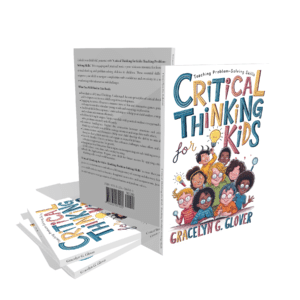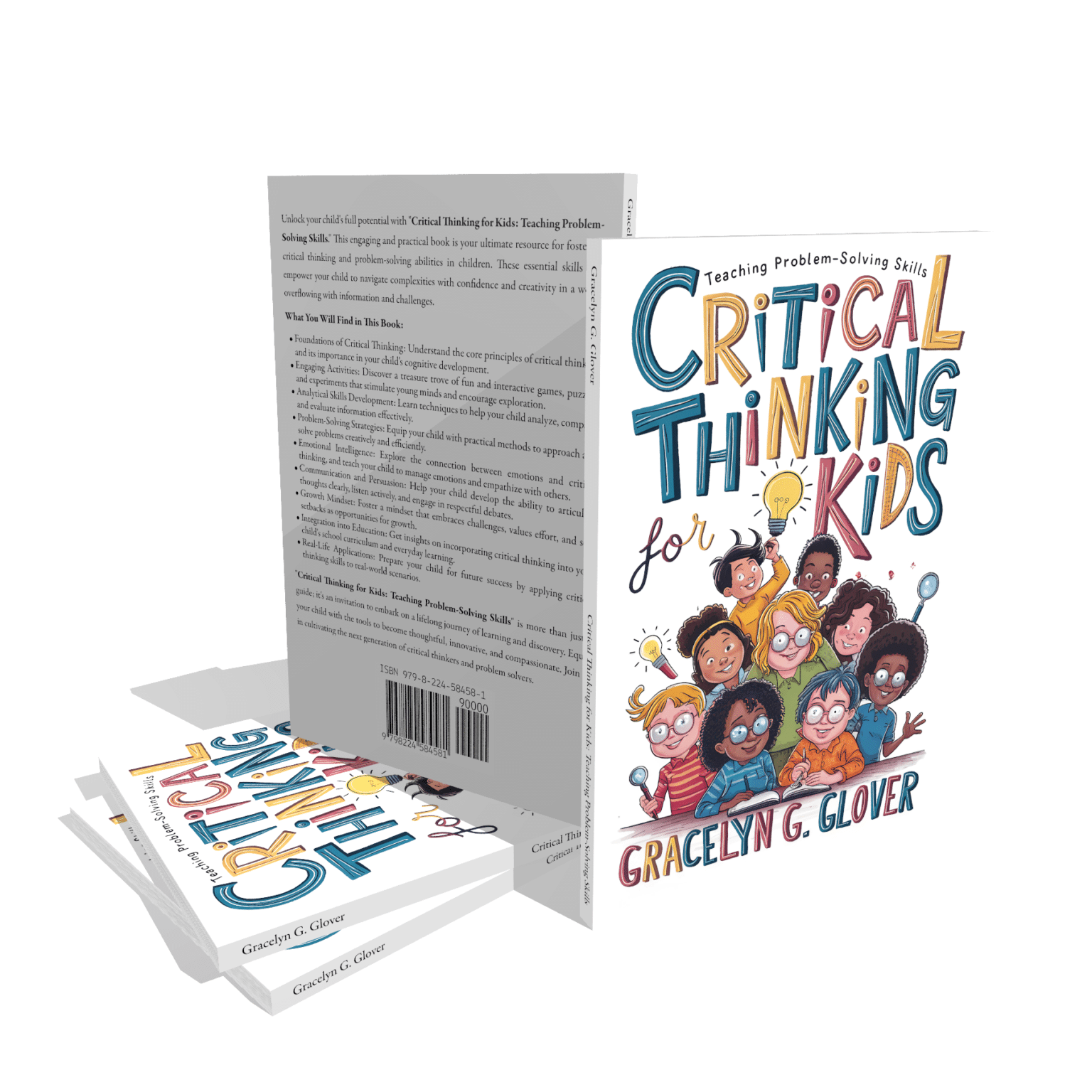Critical Thinking for Kids: Teaching Problem-Solving Skills – Complete Guide to Developing Young Minds

Critical thinking for kids has never been more essential in today’s rapidly changing world. Every parent and educator faces the challenge of preparing children for a future where analytical thinking and problem-solving skills will determine success. This comprehensive ebook offers a practical roadmap for developing these crucial abilities in young minds through engaging activities and proven techniques. Unlike generic parenting guides, this resource specifically focuses on cognitive development strategies that make learning enjoyable while building lasting critical thinking foundations.
The book bridges the gap between theoretical concepts and practical application, providing parents and teachers with immediately usable tools for nurturing independent thinking. By combining emotional intelligence development with analytical skills training, children learn to approach challenges with both logic and empathy, creating well-rounded problem-solvers ready for any situation.
What You’ll Discover
- Cognitive Development Techniques: Learn proven methods to enhance your child’s analytical thinking abilities through structured activities that build neural pathways for logical reasoning
- Emotional Intelligence Integration: Discover how to connect feelings with thought processes, helping children develop self-awareness and empathy while solving complex problems
- Real-World Problem-Solving Applications: Master practical scenarios and role-playing exercises that translate critical thinking skills into everyday situations and challenges
- Age-Appropriate Learning Activities: Access engaging puzzles, games, and exercises specifically designed to stimulate young minds without overwhelming them
- Communication Enhancement Strategies: Teach children to articulate their reasoning clearly and engage in meaningful discussions about complex topics
- Confidence Building Through Achievement: Help kids develop resilience and self-assurance by successfully navigating increasingly challenging problem-solving scenarios
Why This Book Matters
Teaching problem-solving skills to children isn’t just about academic success—it’s about preparing them for lifelong learning and adaptation. This resource addresses the growing concern among parents who recognize that traditional education alone doesn’t adequately develop critical thinking abilities. The book’s evidence-based approach combines neuroscience research with practical classroom experience, ensuring strategies that actually work in real-world settings.
What sets this guide apart is its emphasis on making critical thinking enjoyable rather than burdensome. Children naturally develop stronger cognitive abilities when learning feels like play, and this book masterfully balances fun with fundamental skill development. The immediate practical application means you’ll see improvements in your child’s decision-making and problem-solving confidence within weeks of implementation.
Key Features
This comprehensive ebook spans multiple chapters covering essential cognitive development principles, practical implementation strategies, and age-appropriate activities. Available as an instant digital download, you’ll receive immediate access to step-by-step guides, printable worksheets, and interactive exercises. The format allows for easy reading on any device, with printable materials for hands-on practice sessions. Also available as audiobook on Google Play Books and Spotify for convenient listening during commutes or family workout sessions.
Frequently Asked Questions
How early can children start developing critical thinking and problem-solving skills?
Children can begin developing basic critical thinking skills as early as age 3-4 through simple questioning techniques and decision-making opportunities. The book provides age-appropriate strategies that grow with your child, making it suitable for children from preschool through middle school years.
Will these teaching methods work for children with different learning styles?
Absolutely! The book includes diverse teaching approaches including visual, auditory, and kinesthetic learning activities. Every child can benefit from the multi-sensory problem-solving techniques that accommodate various learning preferences and cognitive strengths.
How long does it take to see improvements in a child’s problem-solving abilities?
Most parents report noticeable improvements in their child’s analytical thinking and decision-making confidence within 2-4 weeks of consistent application. The key is regular practice using the engaging activities provided throughout the ebook.
Get Your Copy Today
Transform your child’s cognitive development with this comprehensive guide to critical thinking for kids. Available for instant download at just $6.99, this ebook provides exceptional value compared to expensive educational programs or private tutoring sessions. Also available as audiobook on Google Play Books and Spotify for flexible learning on-the-go. Purchase your copy through all major ebook retailers including Apple Books, Barnes & Noble, and Kobo to begin developing your child’s problem-solving skills today.
Watch the Video Review

